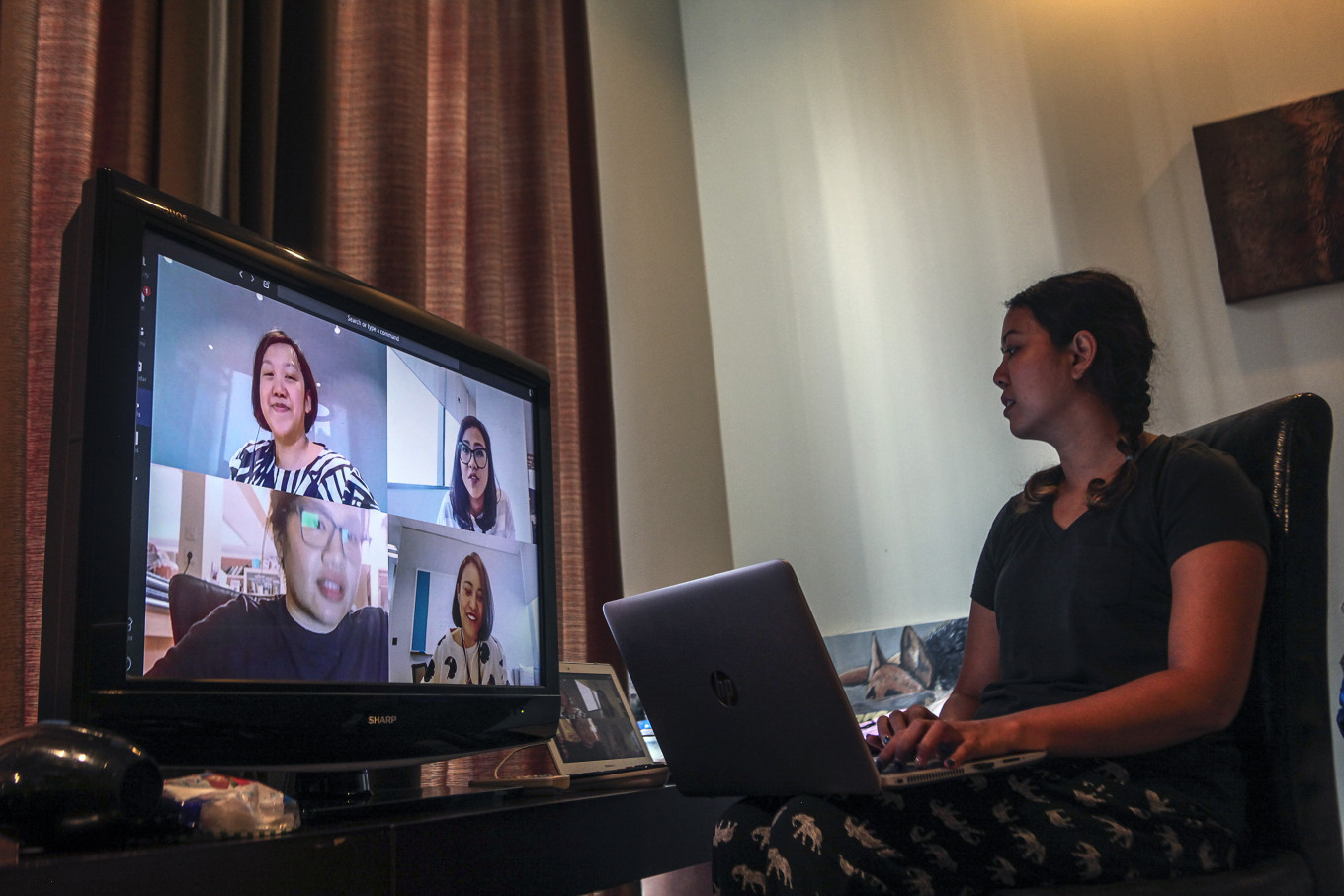Popular Reads
Top Results
Can't find what you're looking for?
View all search resultsPopular Reads
Top Results
Can't find what you're looking for?
View all search resultsWhy is it so hard to get hybrid work right in Indonesia?
Indonesia has a high cybercrime rate, with more than 490 million cases in 2020; a 41 percent increase from the previous year, according to National Cyber and Crypto Agency (BSSN).
Change text size
Gift Premium Articles
to Anyone
T
wo plus years ago, the world woke up to a reality that was soon to change the future of work. The pandemic-led unprecedented lockdowns forced organizations to go remote, almost overnight.
In Indonesia, as in any other emerging economy, many organizations were getting ready to start their digital transformation journey and were not ready to make the shift that fast. However, organizations had to respond to the situation and, in most cases, turn to remote work to keep their businesses running.
Remote work was unsettling for many employees in the beginning, but it brought about a shift in mindset. The outlook toward work, how we work, and where we work from has changed. Employees are now seeking much more value from their work. Popular opinion seems to portray that hybrid work or remote work has helped overall well-being and has increased the productivity of employees.
A recent report, the Cisco Global Hybrid Work Study 2022 indicates that in Indonesia alone, 83.5 percent of employees prefer to work in hybrid mode. It does seem that organizations have realized after two years of going from remote to hybrid mode, that hybrid mode is perhaps the way forward.
The Indonesian government also announced a work-from-anywhere (WFA) policy recently, to encourage the hybrid workforce. But are organizations in Indonesia fully prepared for hybrid work?
According to a recent report by the Asian Development Bank (ADB), Indonesia’s economy is expected to grow by 5.0 percent in 2022 and 5.2 percent in 2023, as domestic demand continues to recover.
However, to achieve this goal, the country will have to harness digitalization to increase the productivity of its hybrid employees. To maintain access to a tech-savvy workforce, they will need to invest in digital infrastructure, set clear policies, and bring about regulatory reforms around hybrid work.
Talent is at the core of any organization's long-term plans and how they approach their talent will eventually determine the success of their business.
The Indonesian government is determined to improve the quality of its talent and human resources in accordance with the priority strategy outlined in the Making Indonesia 4.0 roadmap. Organizations will have to prepare to provide all the support needed to foster an environment where the hybrid workforce can thrive. They need to provide the necessary tools and technology to upskill and reskill their existing workforce and help them stay updated with the latest technology.
Given the large percentage of the Indonesian workforce opting for hybrid mode and the economic growth trajectory, building strong digital infrastructure is the only way forward.
Organizations need to adopt technology that is intuitive and mobile-first. In the Human Resources realm, an end-to-end Human Resource Management System platform that helps manage the entire employee lifecycle, and technology that is employee-centric and enables engagement, retention, and attraction of talent is essential.
Indonesia has a high cybercrime rate, with more than 490 million cases in 2020; a 41 percent increase from the previous year, according to National Cyber and Crypto Agency (BSSN). This requires companies to provide a safe HRMS platform to ensure data security which allows employees to work from anywhere. Organizations, especially operating on the cloud, can tackle cybercrime by taking small steps.
• Ensure your employees are educated on the importance of cybersecurity and direct their behavior by providing adequate online training.
• Install Virtual Private Network (VPN) on work laptops for remote workforces, so they have access to the same level of privacy and security as offered in the workplace.
• Make sure employees have multi-factor authentication for external meetings to confirm the identity of participants.
A challenge that employees often face is clarity about policies around hybrid work. Organizations need to be clear in communicating the norms or processes around hybrid work and focus on creating a safe work environment for the workforce while they come to the office.
Finally, policies that enable managers to handle the hybrid workforce without biases need to be implemented as well.
Apart from being open, communicative, flexible, and agile, organizations will need to prioritize adopting cutting-edge technology, upskilling and reskilling their employees, and look at the overall well-being of their employees to ensure a future-ready workforce in the ever-changing work landscape in Indonesia.
***
The writer is vice president and head of Asia, the Pacific and Japan expansion at Darwinbox.











